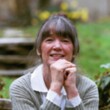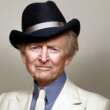The Cider House Rules
Description
More Details
Excerpt
Similar Titles From NoveList
Similar Authors From NoveList
Published Reviews
Kirkus Book Review
As in The World According to Garp, a young man is trying to find his way as he grows up amid institutional, individual, familial, and social craziness in upper New England. An orphan whose adoptions never stick, Homer Wells keeps returning to the institution in remote St. Cloud's, Maine, that is presided over by it's elderly founder, ascetic Dr. Wilbur Larch, committed and expert obstetrician and abortionist (as well as ether addict). Dr. Latch's creed is to give people what they want: an orphan or an abortion. He and his aging female staff count on Homer to grow up to succeed Larch in ""the Lord's work"" of providing abortions in this pre-World War II world; but while Homer is an accomplished apprentice, his principles are resolutely pro-life. At 20, he leaves the orphanage to live with a wealthy family of coastal apple-growers, whose son and future daughter-in-law are the Golden Delicious variety and become his closest friends. Homer becomes expert at the business, which involves sorting marketable perfect apples from the bruised ones good only for the cider press. But with the apples comes temptation, leading to problems with the rules of love, a not-quite Jules-et-Jim-like solution, and an ultimate crisis that brings the book to a resounding, but awfully pat, resolution. As with Garp, Irving is not afraid of sentiment--and here knows how to stir the emotions in skillful depictions of parental love, unwanted orphans, Alzheimer-stricken adults, and distraught women desperate for a D&C. Even in scenes of appalling horror, Irving can be very funny--he shows obvious indebtedness to Dickens--but there is a less savory element in the way he presents some of his pathetic characters--especially females--as titillating freaks. And the cranking out of the less-than-gripping plot is made palatable largely by episodic situations involving the more vivid minor characters. Most seriously, despite echoes of the clearly ""significant"" title throughout, it is not at all clear what exactly is the novel's point. Finally, this effort is sometimes moving or amusing, but also irritating and ultimately disappointing. Copyright ©Kirkus Reviews, used with permission.
Reviews from GoodReads
Citations
Irving, J. (2012). The Cider House Rules . HarperCollins.
Chicago / Turabian - Author Date Citation, 17th Edition (style guide)Irving, John. 2012. The Cider House Rules. HarperCollins.
Chicago / Turabian - Humanities (Notes and Bibliography) Citation, 17th Edition (style guide)Irving, John. The Cider House Rules HarperCollins, 2012.
Harvard Citation (style guide)Irving, J. (2012). The cider house rules. HarperCollins.
MLA Citation, 9th Edition (style guide)Irving, John. The Cider House Rules HarperCollins, 2012.
Copy Details
| Collection | Owned | Available | Number of Holds |
|---|---|---|---|
| Libby | 0 | 0 | 0 |




































